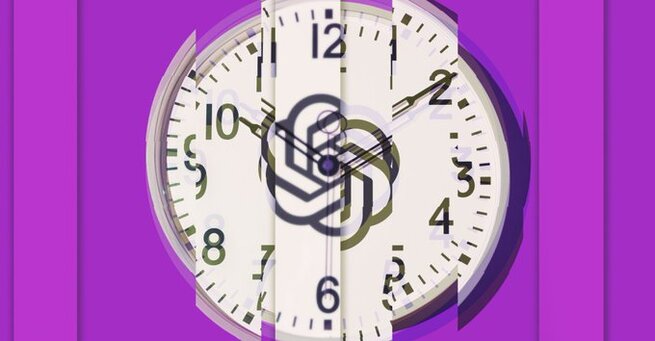

If you’ve ever asked ChatGPT for the current time, you know the answer can be… unpredictable. Unlike your phone or computer, the AI often gives inconsistent responses—sometimes precise, sometimes completely off, and sometimes a polite “I can’t tell the exact time.” For users expecting a reliable personal assistant, this gap can be frustrating. But there’s a surprisingly simple reason behind it.
Despite being marketed as a hyper-intelligent AI, ChatGPT doesn’t have real-time access to your device clock or location. When asked, it may provide today’s date according to its system, guess based on a specified time zone, or admit defeat entirely. The inconsistency isn’t a bug—it’s a deliberate design choice, prioritizing privacy and system limitations over live-time accuracy.
Reddit threads and OpenAI forums are full of users raising this issue. One user noted that ChatGPT “gives a bad name to an AI model with cognitive abilities far superior than my own.” Others highlight that while the AI excels in many areas, the inability to provide the current time makes it feel less like a personal assistant and more like a conversational partner with a blind spot.
Some AI enthusiasts have found partial solutions using web search tools or connecting ChatGPT to integrated applications that can access real-time data. Yet, even with these workarounds, the problem persists for “vanilla” ChatGPT—the standard version that millions of users rely on daily.
Ironically, telling time is trivial for most devices. Tiny chips in your phone or computer track every second with incredible precision. The challenge for ChatGPT isn’t the mathematics—it’s the architecture. AI models like this operate on pre-trained data and don’t maintain a live connection to the clock on your device unless specifically enabled in a controlled environment.
OpenAI’s decision to restrict real-time access reflects a careful balance between functionality and user privacy. Allowing live-time access would require linking the AI to device sensors or user location, potentially raising security and privacy concerns. The trade-off? ChatGPT remains safe but occasionally inaccurate when it comes to time-sensitive queries.
For most users, ChatGPT’s time blind spot is a minor inconvenience. For others who hoped it could serve as a fully functional virtual assistant, the limitation is more noticeable. Understanding the AI’s design philosophy helps set expectations: ChatGPT excels at conversation, research, and creative tasks, but live-time awareness isn’t part of its core toolkit—yet.
While ChatGPT dazzles with its AI capabilities, telling time remains a surprisingly human challenge. Until OpenAI integrates secure, live-time access, users will have to rely on their devices or clever workarounds. The takeaway? Even the smartest AI has blind spots, and time is one of them.

𝗦𝗲𝗺𝗮𝘀𝗼𝗰𝗶𝗮𝗹 𝗶𝘀 𝘄𝗵𝗲𝗿𝗲 𝗿𝗲𝗮𝗹 𝗽𝗲𝗼𝗽𝗹𝗲 𝗰𝗼𝗻𝗻𝗲𝗰𝘁, 𝗴𝗿𝗼𝘄, 𝗮𝗻𝗱 𝗯𝗲𝗹𝗼𝗻𝗴. We’re more than just a social platform — from jobs and blogs to events and daily chats, we bring people and ideas together in one simple, meaningful space.

Comments